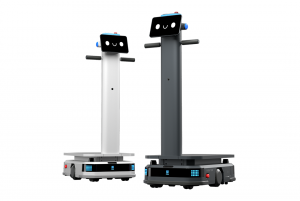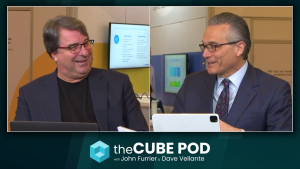CIOs Need to Eliminate Baggage, Focus on Business Needs
![]() Three major trends emerged from the annual MIT Chief Data Officer and Information Quality (CDOIQ) Symposium in mid-July, writes Wikibon Analyst, Consultant, and former CIO Scott Lowe in “CIOs Need to Understand Three Critical Takeaways from Big Data CDOIQ Symposium“. And the news is not all good for the future of CIOs.
Three major trends emerged from the annual MIT Chief Data Officer and Information Quality (CDOIQ) Symposium in mid-July, writes Wikibon Analyst, Consultant, and former CIO Scott Lowe in “CIOs Need to Understand Three Critical Takeaways from Big Data CDOIQ Symposium“. And the news is not all good for the future of CIOs.
The first two trends, while certainly real issues, are familiar. First, Big Data involves managing very high volumes of data, orders-of-magnitude greater than traditional structured data alone. This requires new technologies for capturing, storing, manipulating, and analyzing these very large data sets and creates several challenges that must be managed. Second, this volume exacerbates the traditional problems of data quality and relevance. Organizations need to ensure that the data on which they based the predictive analysis that guides their business decisions is high quality and not misleading. And they have to be sure that the data is relevant to the business and the analysis it conducts. Good data on the injuries sustained by avatars in online adventure games, for instance, will not be relevant to hospitals planning for the impact of Obamacare. Lowe suggests that in some cases no data is better than bad or irrelevant data, since without data at least experienced managers are free to make “gut decisions” based on their experience, while bad or irrelevant data may mislead the company completely.
The third, however, is a monkey wrench thrown into the CIO’s future. The new position of Chief Data Officer (CDO) was a major topic of discussion and presentations at the conference. As the title implies, the CDO would be a C-suite level executive in charge of the management and use of all this Big Data. And leading experts including Mario Faria, Big Data Technology Adviser at the Technology Partner Network of the Bill & Melinda Gates Foundation, argues that CDOs not only should be part of every medium-to-large organization but should report to the CFO or CEO, not the CIO. “Data should be a business issue, not a technical issue,” Faria argues.
Obviously a CDO who is outside the IT organization diminishes the relevance of the CIO and IT in general to the business. Part of the problem, Lowe says, is that in many organizations CIOs are viewed as chief geeks rather than as strategic leaders, and in some organizations that perception is accurate. Even where it is not, CIOs spend a large part of their time solving technical problems and overseeing purely infrastructure-related activities.
“For years I’ve advocated that CIOs jettison as much baggage as possible in order to better focus on the business,” Lowe writes in his conclusion. “The industry is approaching a point at which information needs will ultimately be addressed — with or without the CIO’s involvement.”
A message from John Furrier, co-founder of SiliconANGLE:
Your vote of support is important to us and it helps us keep the content FREE.
One click below supports our mission to provide free, deep, and relevant content.
Join our community on YouTube
Join the community that includes more than 15,000 #CubeAlumni experts, including Amazon.com CEO Andy Jassy, Dell Technologies founder and CEO Michael Dell, Intel CEO Pat Gelsinger, and many more luminaries and experts.
THANK YOU













